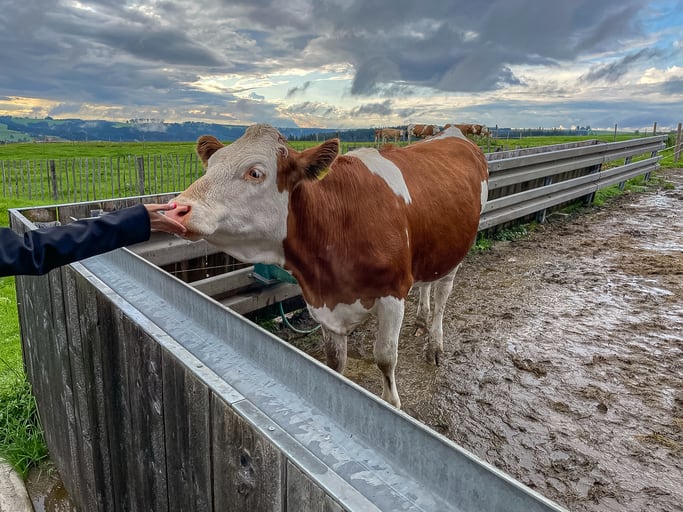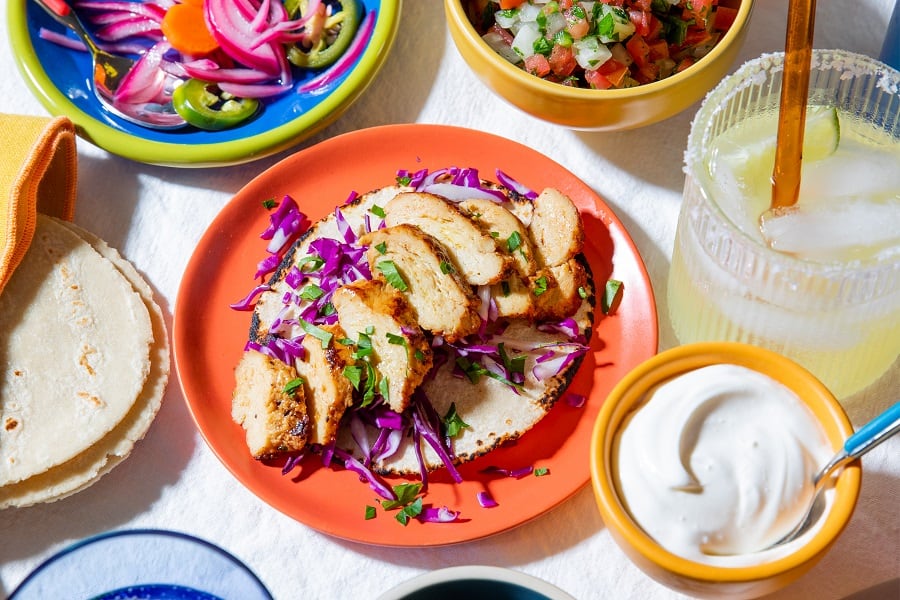As the industry’s only LGBTQ+ -and-woman-led firm, Joyful Ventures launches its $24 million climate venture fund to accelerate sustainable protein development for pre-seed and seed stage startups around the world.
Led by partners Milo Runkle, Jennifer Stojkovic and Blaine Vess, the venture capital firm plans to “channel the fund into pre-seed and seed stage startups from across the globe that disrupt and innovate the food system,” by targeting plant-based, precision fermentation, mycoproteins, molecular agriculture and cultivated technologies, according to the press release.
“We believe that the global movement toward food transformation is expanding and accelerating,” said co-founder and General Partner Blaine Vess in the press release. “The future is full of multi-billion dollar, world-changing sustainable protein companies whose founders face critical challenges, particularly in the pre-seed and seed stages.”
The fund’s advisory team features industry founders and executives, including Bjorn Oste, Co-Founder of Oatly, Dr. Sandhya Sriram, CEO of Shiok Meats, Ryan Bethencourt, Co-founder of Indie Bio and CEO of Wild Earth, and Arturo Elizondo, CEO of EVERY.
Alternative protein companies raised nearly $6 billion between 2010 and 2020
Investment in alternative proteins saw $3.1 billion in 2020—a three-fold increase compared to 2019, with investments on developing plant-based meat, egg and dairy, cultivated meat and fermentation-derived proteins, driven by social, environmental and economic challenges according to Good Food Institute (GFI).
Between 2010 and 2020, alternative protein companies raised nearly $6 billion, with more than half raised in 2020 alone, GFI stated. Plant-based meat, egg and dairy were among the categories that received the most capital “in any single year in the industry’s history” at $2.1 billion. This includes Impossible Foods’ $700 million funding, LIVEKINDLY’s $335 million venture capital financing, Oatly’s $200 million private equity and $78 million debt financing, and Califia Farms’ $172 million private equity financing, GFI detailed.
Cultivated meat companies, which received more than $360 million in 2020 investments are making significant headway with USDA’s recent approval of GOOD Meat and Upside Foods, allowing the companies to move forward with commercial production and sales of “cell-cultured chicken” in the US.
Consumer perception of food technology improves
While public approval of cultivated meat is still underway, consumer perception of food technology, like precision fermentation, as a solution towards environmental issues is increasing, paving the way for greater acceptance of cultivated meat as an environmentally-friendly alternative in the future.
Millennials and Gen Z who have grown up in a tech-driven economy are more likely to “vote with their wallets,” on environmental, social and economic issues according to a Hartman Group study on consumer food technology perceptions.
Given that sustainability is the fundamental principle behind the advancement of alternative proteins, it is crucial for brands to create effective communication strategies that align with consumers' environmental and nutritional values. This is particularly important for technology-driven solutions that aim to tackle the intricacies and ever-changing nature of the food system.




